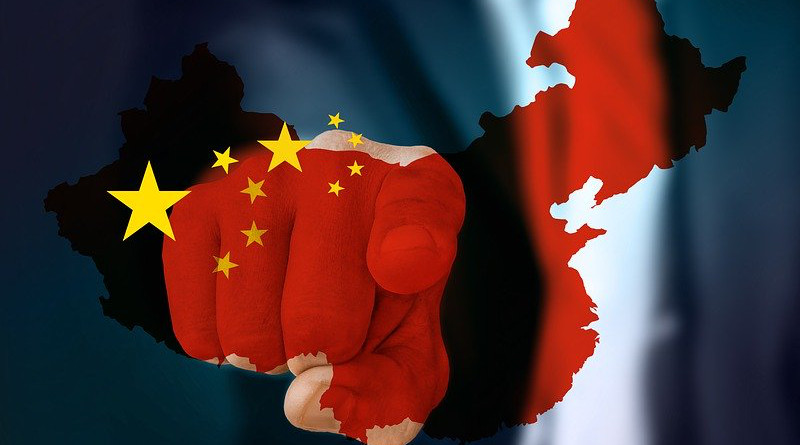China’s Global Initiatives: Prospects For Regional Connectivity And Integration – OpEd
By Dr. Muhammad Muhammadi and Dr. Rahat Iqbal
China’s President Xi Jinping has introduced many ideas for shaping China’s foreign policy, particularly the Belt and Road Initiative (BRI) and a shared future for mankind. Besides these, he also proposed groundbreaking global initiatives, including the Global Development Initiative (GDI), Global Security Initiative (GSI), and Global Civilization Initiative (GCI), which aim to implement the United Nations (UN) 2030 agenda for achieving sustainable development goals (SDGs) under the vision of a shared future for mankind. These initiatives also focus on sustainable development, security cooperation, and cultural exchanges among states.
China’s GDI, GSI, and GCI have significant prospects for South Asia and beyond. For instance, GDI under BRI is vital in boosting South Asian, Central Asian, and the Middle East’s economic growth through infrastructure and other developmental projects. Under the framework of BRI, the economic corridors play a crucial role for participating countries in regional connectivity and economic development. In this context, China Pakistan Economic Corridor (CPEC) provides easy access to landlocked states such as Afghanistan and other regional countries, including Central Asia Republic (CARs), the Middle East, and Europe. The GDI aims to boost regional connectivity and trade among regional countries. In this regard, the strategic significance of Pakistan makes it a key player in the region. Furthermore, improved infrastructure and connectivity in Pakistan and neighboring countries can facilitate regional trade, enhance exports, and create job opportunities for the masses of regional states.
In the regional context, China and Pakistan need a peaceful, prosperous, and stable Afghanistan. Therefore, China is actively reconstructing the war-torn country, by seeking the unfreezing of Afghanistan’s overseas assets, continuing humanitarian assistance, extending BRI, and setting up oil refineries. Similarly, for Pakistan, the GDI emphasizes infrastructure development for Islamabad. Pakistan has been a significant partner in CPEC that primarily focuses on constructing roads, ports, and rendering energy and communication projects. These developmental projects can transform Pakistan’s transportation network, boost trade, enhance the energy sector, and attract Foreign Direct Investment (FDI).
GSI concentrates on comprehensive, cooperative, and viable security measures. It intends to ‘eradicate the roots of international conflicts, improve global security governance, promote robust global peace and development, and boost cooperative efforts to bring stability to an unstable area. Through GSI, China is committed to resolving disputes and differences through dialogue between countries and maintaining the security of traditional and non-traditional issues. Under such initiatives, countries can cooperate with the area’s most vulnerable and shared security challenges, including traditional and non-traditional security issues such as climate change, cross-border terrorism, and pandemics. It also underlines the dignity and respect for the territorial integrity of all countries and binds itself to abide by the purpose and principles of the United Nations (UN) charter. Under the framework of GSI, China, and Pakistan have increased security cooperation, such as enhancing strategic relations by upholding high-level military-to-military visits, joint military exercises, counterbore efforts, and condemnations of all forms of terrorism. It can also help enhance counter-terrorism capabilities, intelligence sharing, and border security between countries and beyond.
GCI advocates the importance of civilizations based on culture, norms, traditions, and values. It intends to highlight and promote the civilizational and cultural values among the intra and inter-regional states through people-to-people contact, education, media, cultural exchange programs, consecutive visits, and tourism of intended states. This would unite diverse cultural and civilizational societies and enhance cooperation, eventually adding to sustainable development. Considering the current political scenario of the international realm and Pakistan’s position, this is indeed timely and needed approach. GCI activities would enhance Pakistan’s cooperation with regional states and promote its values and culture through exchange programs, tourism, and education.
GDI, GSI, and GCI thus have the potential to have major contributions to regional cooperation through development, connectivity, security, and promotion of values. Since South Asia belongs to the developing and under-developed states, these projects will also help to boost trade, enhance security cooperation, empower people, improve the living standards of the common people, and promote the culture and values of deprived areas of the inter-regional and intra-regional states. The all-weather China-Pakistan strategic partnership and its strategic importance make it vital for Islamabad to actively participate in such activities. For Pakistan, this would not only strengthen the bilateral relation with China but could open avenues of expanding its integration through various peaceful measures.
In conclusion, China, through its development initiatives, could further strengthen economic ties with participating countries, potentially leading to enhanced trade and investment opportunities. It will also help to strengthen the geopolitical position of China and the partner countries, mainly because it may reshape geopolitical dynamics by strengthening China’s position as a m
ajor player in international politics. Furthermore, regional countries can strengthen their security mechanisms, including cybersecurity, biosecurity, and emerging technology, to enhance governance and security issues. For instance, as an observer at the SAARC, China can establish frameworks to counter traditional and non-traditional security threats between the member countries. This would help reduce security issues between regional countries, especially China, India, and Pakistan.
The authors are Associate Directors at the Center for International Strategic Studies (CISS), Islamabad, Pakistan.

